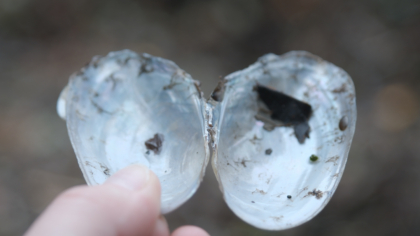Composting

Compost as a generative place and state of transformation, nourishment, leakiness and softness, feels like the right setting to be thinking through ideas of future ecologies and the more than human bodies we are entangled with. Holding the multitude of thoughts, ideas, texts, hopes, and stories together in the container of a compost sketch book, has been allowing me to sink into this messiness.
It matters what matters we use to think other matters with; it matters what stories we tell to tell other stories with; it matters what knots knot knots, what thoughts think thoughts, what descriptions describe descriptions, what ties tie ties. It matters what stories make worlds, what worlds make stories.
Donna Haraway, Staying with the Trouble
In Composting Feminism and Environmental Humanities Jennifer Mae Hamilton and Astrida Neimanis build on Haraway’s work, insisting that ‘it matters what compostables make compost and it matters if and how those nutrients are acknowledged’. [1] They talk of how composting explicitly values and deliberately repurposes extant matters—namely feminism—in the search for different kinds of worlds.
’our attention to the turning and distribution of these matters figures us as facilitators in these tender alchemies.’ [2]
Like compost, fermentation is a ripe framework to explore these ideas and approach trans inclusive, antiracist, counter colonial feminisms. It holds questions of change through 'the simultaneity of preservation and transformation, futurity and decay.' [3]
'fermentation is queer time; and fermentation is collaboration. Fermentation is a way to tap into the fizzy currents within transnational feminist practices.' [4]
'As we are always already reciprocally becoming with others, with the world, such an ethics of entanglement entails both responsibilities and opportunities for reworking the material effects of the past and the future.' [5]
The building of compost from which to grow new worlds necessitates that we must pay attention to what goes in the compost. Notice what is being transformed, how, why and to what effect.
Ask which histories are being added, whose bodies nourished: from whose compost will our future seeds grow?
[1] Jennifer Mae Hamilton and Astrida Neimanis, Composting Feminisms and Environmental Humanities
[2] Jennifer Mae Hamilton and Astrida Neimanis, Composting Feminisms and Environmental Humanities
[3] Lauren Fournier, Fermenting Feminism as Methodology and Metaphor: Approaching Transnational Feminist Practices through Microbial Transformation
[4] Lauren Fournier, Fermenting Feminism as Methodology and Metaphor: Approaching Transnational Feminist Practices through Microbial Transformation
[5] Cecilia Åsberg and Astrida Neimanis, Bodies of the Now : Feminist Values in Posthuman Times





